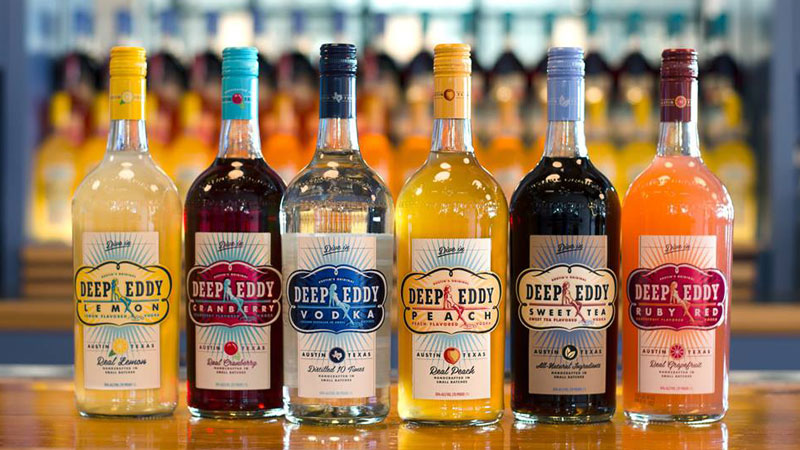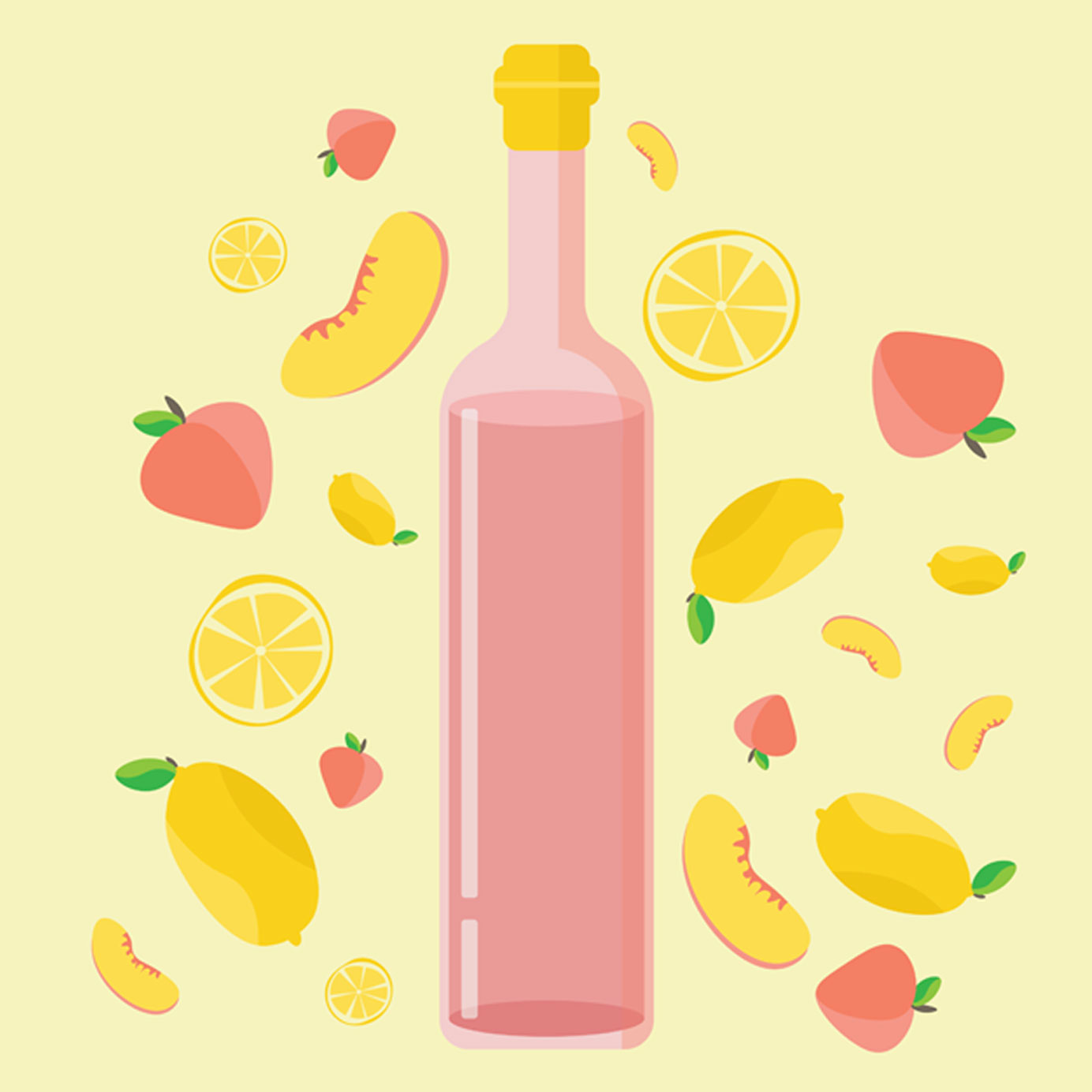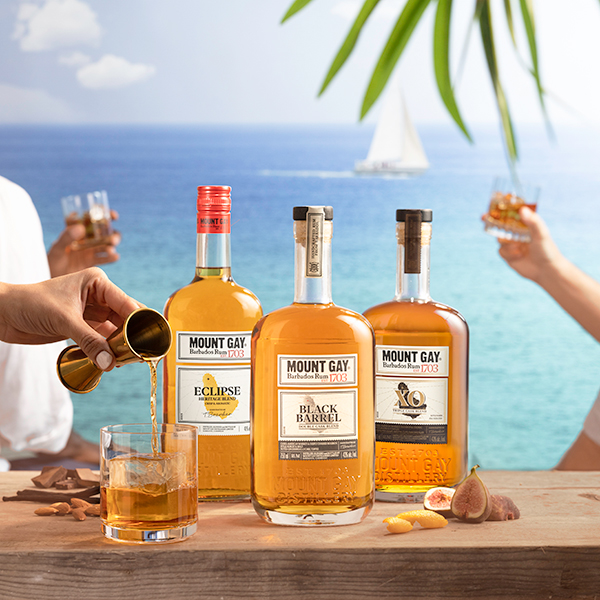Vodka has a split personality. It alienates many self-proclaimed cocktail aficionados, who regard it and its fans as “either boring or troublesome,” according to one industry poll. The worst offenders are, of course, flavored vodkas that have been artificially altered to taste like whipped cream or bananas.
Consumers, on the other hand, like vodka. A lot. It is America’s favorite spirit, with annual sales of $6 billion-plus. According the Distilled Spirits Council, that figure represents the largest chunk of the $26.2 billion U.S. spirits industry.
Deep Eddy, a small-batch vodka distillery based in Austin, Tex., wants to bridge the gap between vodka’s popularity and perception. Its mission? To reclaim flavored vodka with all-natural ingredients and a contemporary ethos.
“Did the world need a Swedish fish-flavored vodka?” Matt Pechman, vice president of marketing at Deep Eddy Vodka, asks. (This is not a hypothetical question.)
“The category really created this stigma against itself with all the outlandish flavors,” Pechman says. “If consumers are skeptical about flavored vodka, then I view it as an opportunity to change their perception by talking to them about what flavored vodka can be when done right.”
Deep Eddy uses only natural ingredients, meaning the flavors are actual fruit juice mixed with a vodka base. The company also distills its own base, crafting it in small batches at its facilities in Dripping Springs, Tex. The team distills the spirit 10 times and quadruple filters it through charcoal. Then, they add the fresh fruit juice sourced from Texas farms, as well as essential oils, Indonesian tea, honey, and pure cane sugar.
“It would be much less expensive to cut corners or use inferior products,” Marc Cavazos, Deep Eddy’s distillery plant manager, says. “But the objective is to make superior vodkas, no matter what it takes.”
As consumers crave “authenticity,” the provenance of what we eat and, increasingly, drink, drives enthusiasm for things like organic food and natural wine. These have grown from niche markets to multimillion dollar powerhouses.
Whether Deep Eddy can capitalize on these consumer appetites is another question. In addition to category hurdles, flavored vodka has limited shelf life. Working with natural instead of synthetic ingredients means Deep Eddy vodkas have a shelf life of one year, whereas artificially infused vodkas can live practically forever.

The most popular Deep Eddy vodka is Ruby Red, or grapefruit, but the line also includes Southern favorites like Sweet Tea as well as an unapologetically tart Lemon. Nielsen ranks the latter as the country’s best-selling citrus vodka. Deep Eddy Lemon topped VinePair’s recent ranking of the best next-generation flavored vodkas.
Inventive bartenders are also embracing Deep Eddy’s line, serving them as shots and within cocktails. At Kimoto Rooftop in New York City, beverage director Jhony Alam uses Deep Eddy in the bar’s Tropical Mule, which she says is the spot’s most popular drink overall. The brand also stars in one of her personal favorite concoctions, Peach Lemon Iced Tea. Inspired by Snapple’s Peach Iced Tea, the cocktail combines Deep Eddy Peach and Lemon.
“A lot of our New York City customer base is not familiar with the brand, so our bartenders often have to educate the consumer on its attributes,” Alam says. “When people learn that Deep Eddy flavors all use natural juices, it’s a pretty easy sell.”
Its local popularity is also soaring. Austinites liken the atmosphere at Deep Eddy’s 5,000-square-foot tasting room to a house party, with lines down the road for entrance. “We’re all about bringing people together,” Pechman says.
Nationally, however, the brand remains niche. Re-educating consumers about the potential of flavored vodka is paramount, as is brand recognition and distribution. Pechman says the company’s next hurdle for Deep Eddy is getting its bottles in more bars, restaurants, and retail stores.
Two Deep Eddy vodkas are currently offered aboard Southwest Airlines. Exposing regional and national consumers to next-wave flavored vodka is important for the company and the category as a whole. Vodka might be America’s No. 1 spirit, but whiskey and tequila are rapidly gaining ground. Long-standing vodka brands have seen their sales plateau in recent years, while sales of smaller, hand-crafted brands like Deep Eddy, Tito’s Vodka, and New Amsterdam have increased significantly.
‘We have sort of transcended the category of flavored vodka by offering an all-natural experience,” Pechman says, “And we have the great provenance of being made in America.”
Nielsen regularly rates Deep Eddy as one of the fastest-growing vodka brands in the U.S. In a May 2018 report, the brand was ranked as the seventh-fastest growing spirits brand in general. This is significant growth for any company, but particularly one tasked with appealing to both the fans and detractors of traditional vodka.
“I love introducing consumers to one of our flavors and seeing their eyes light up,” Pechman says. “They’ve simply never had anything like it before.”

